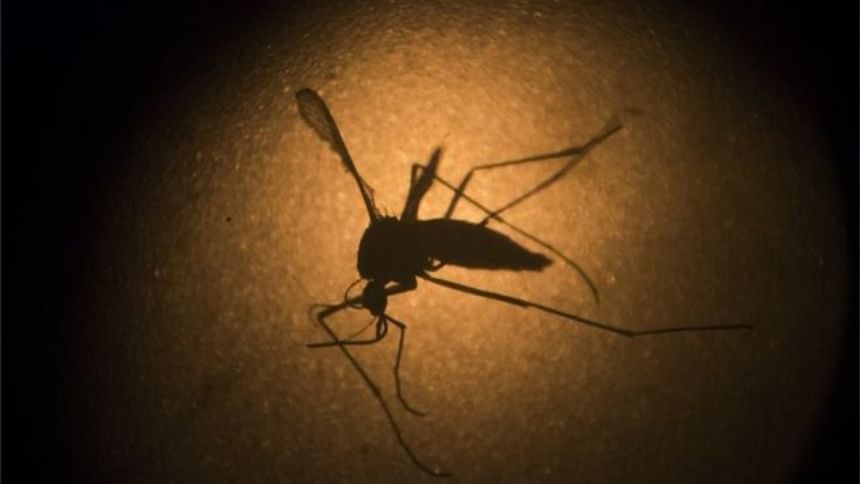S Korea confirms first Zika case

South Korean health authorities said Tuesday a man who recently returned home from Brazil has been confirmed to be infected with the Zika virus.
It is the nation's first confirmed case of the mosquito-borne virus, which is suspected of causing serious birth defects.
According to the authorities, the 43-year-old man returned to Korea via Frankfurt Airport in Germany on March 11. He visited the South American country for work purposes from Feb. 17-March 9. He began to experience symptoms, including fever and muscle pain, on March 16.
He visited a small clinic Friday in Gwangyang, South Jeolla Province. Although he told his doctor that he'd been to Brazil and had two typical symptoms of the disease -- fever and muscle pain -- the physician didn't report the case to authorities immediately.
This was against the manual that had been distributed by the Korea Centers for Disease Control and Prevention, which asked doctors nationwide to report any patient having visited a Zika-affected country and having any of the following symptoms: fever, muscle pain, headache or conjunctivitis.
He visited the same clinic again Monday after developing skin rashes, although his fever had gone down. His doctor finally reported the patient to the government after observing his rashes.
"We are going to talk to the particular physician about the matter," said Jung Ki-suk, director of the KCDC. "We plan to ask him why he failed to report the case after the patient made his first visit. No changes have been made to the initial manual (for health care workers) and it will stay the same."
The patient is currently in stable condition and not experiencing any symptoms, according to the agency. He is staying at the Chonnam National University Hospital in Gwangju only to be monitored and for research purposes. He does not need to be isolated while staying at the hospital, Jung added.
"He is well enough to be released from the hospital," the director of the KCDC said. "But we thought it was necessary to monitor him for a while since he is the first Korean Zika patient. We would like to find out if Koreans have any unique responses to the particular virus."
The World Health Organization on February issued a worldwide warning that the Zika virus is a global public health emergency that requires a united response. The agency claimed the infection has been linked to cases of microcephaly, in which babies are born with abnormally small heads and underdeveloped brains.
Zika can be also spread by a man to his sexual partners. It's currently unknown if a woman can spread the virus through sex. Upon confirming the first case of Zika, the KCDC strongly advised that pregnant women and those considering becoming pregnant consider postponing travel to countries where Zika is circulating, including Mexico, Thailand and Brazil.
Jung also urged all women nationwide to delay pregnancy for at least two months after returning to Korea from Zika-affected countries. For Korean male travelers who visited the nations, he advised them to use condoms for at least 30 days after returning home.
The KCDC is also banning those who visited the affected nations -- the list can be found at the KCDC website at www.cdc.go.kr -- from donating blood for at least a month after their return to Korea.
Jung also explained the KCDC was developing a data system that tracks all travelers coming from Zika-affected nations who had stopovers in other countries prior to arriving in Korea.
"Until we establish the system, we ask all travelers coming from Zika affected countries to report to the authorities at the airport if they had a stopover in non-affected nations," he said. "Once you do that, you'll receive text messages from us letting you know what to do if you experience Zika-like symptoms."
The agency also intends to medically examine the first patient's spouse for possible infection, pending her consent.
Copyright: The Korea Herald/ Asia News Network

 For all latest news, follow The Daily Star's Google News channel.
For all latest news, follow The Daily Star's Google News channel. 








Comments